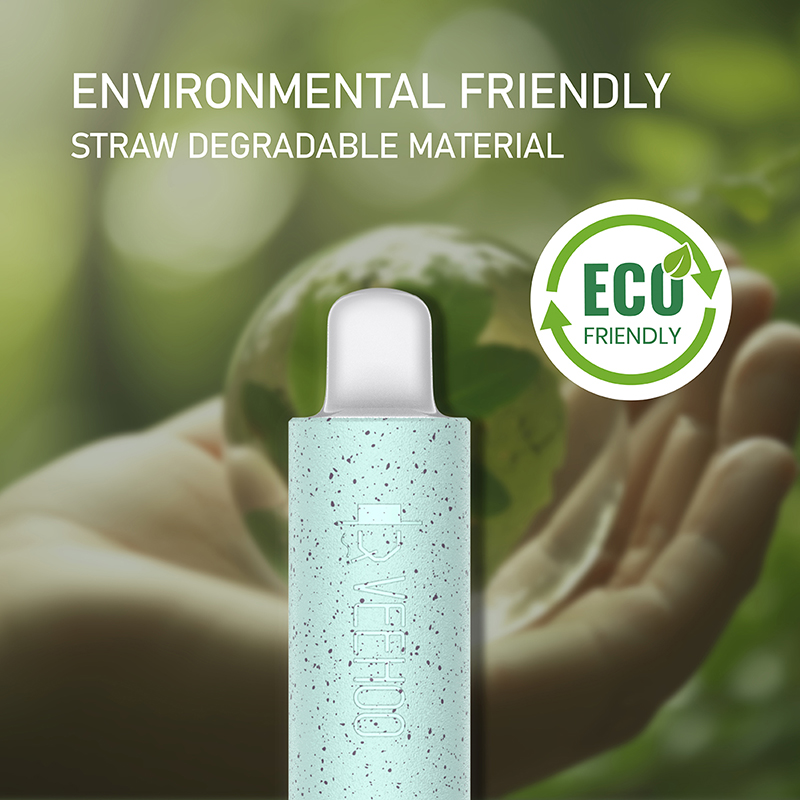Many countries around the world have passed and promulgated a series of vape industry-related bills in 2023, many of which are scheduled to be implemented in 2024. From the proposal to the implementation of these new orders that will take effect on January 1, what discussions and struggles have gone through along the way? How do brands, manufacturers, consumers and civil rights groups respond to this?
Limit public exposure of brand
As the world’s largest vape market, the United States is regarded as a bellwether by the market. Starting from 2024, vapes, which have enjoyed differential regulatory treatment, will also be subject to marketing restrictions similar to traditional tobacco:
Starting from January 1, 2024, New York State in the United States will begin to implement stricter marketing restrictions on vapes and atomization products. Including: the brand name, logo or other identification of vapes cannot appear on any product other than the actual vape; gifts related to the purchase of vapes cannot be provided; brands cannot sponsor events such as sports competitions and concerts.
In addition to marketing methods, the United States will also further reduce the exposure of vapes to teenagers by restricting the design of the product itself.
In June this year, the governor of Texas signed a House of Representatives bill, stipulating that starting from January 1, 2024, vapes will be prohibited from using designs that are mainly targeted at minors, such as candy or juice-like appearance packaging; the appearance of vapes cannot be used to depict children. Cartoon images, symbols or celebrity images used to promote products to minors, etc.

Limit the appeal of flavors to teenagers
In addition to appearance and packaging, taste is also widely regarded as an important aspect of a product’s appeal to teenagers.
The Dutch vape flavor ban, which was passed as early as 2021, will take effect on January 1, 2024. The ban was originally planned to take effect in June 2022, 18 months later than originally planned. According to 2FIRSTS, the Dutch government aims to achieve a smoke-free society in 2040; the government is making every effort to reduce smoking behavior, including raising the price of cigarettes to 10 euros during the current government term.
Starting this year, heated tobacco products will also face flavor restrictions in more countries.
Starting from January 1, 2024, all heated tobacco products other than tobacco flavor will cease to be sold in Bulgaria. The provision was included in an amendment to the country’s Tobacco and Tobacco Products Act, which was approved by the House of Representatives without any debate. Additionally, every package of heated tobacco products must display a warning highlighting the risks associated with use.
The update of this amendment is in response to the Tobacco Products Directive issued by the European Union, otherwise the country may face criminal prosecution.
“Immigration ban” and rising taxes
In addition to segmented supervision on taste and marketing, regulatory agencies in many countries have also begun to implement more stringent “package measures” on January 1, thus making it more difficult for certain groups of people to obtain disposable vapes.
From January 1, 2024, disposable vapes will be banned from entering Australia.

Starting from the same day, the country will also relax the authority to prescribe vapes, no longer limited to general practitioners; Australian doctors and nurses will have the authority to prescribe vapes to patients, and patients can purchase them at pharmacies. There is no shortage of criticism for this move. Some observers say prescription is a formality policy in the country. After banning disposable vapes from entering the country, Australia’s legal vape business, which already has almost no market, is expected to be further compressed. It is reported that the market share of compliant vapes in Australia is less than 5%.
Some countries have also chosen to reverse the trend of domestic consumers using vapes by raising taxes.
Starting from January 1, 2024, Belgium will impose a tax on vape oil at 15 cents per milliliter;
Indonesia’s tobacco tax will be increased by 10%, and the consumption tax on vapes will increase by 15%. After the two are combined, the Indonesian vape industry will bear a tax rate of close to 30% starting this year.
The extent of the tax increase and the way the decision was made in both countries have caused controversy. Consumers and retailers in Belgium said that this new tax may stimulate consumers to return to traditional cigarettes that are more harmful to health; Garindra Kartasasmita, secretary-general of the Indonesian vape Industry Association, said Calling the 30% tax “unfair to emerging industries composed of small, medium and micro enterprises”. He also said that in the process of planning the implementation of the vape tax in 2024, domestic rights groups failed to fully participate. The entire decision-making process is “closed door”.
Can regulatory segmentation on packaging, marketing, and flavors effectively reverse the trend of youth vape use? Can a package of “lockdown orders” and high taxes help create a better compliance market? Can the process of issuing new regulatory orders become more transparent globally? Across the industry, can the voices of various stakeholders be better heard? In 2024, we will wait and see.
Regulatory measures on the vape industry continue to tighten globally. In this context, Veehoo vapes, as a brand that actively advocates user health and compliance, actively responds to and adapts to these changes.
First, we noticed that New York State in the United States will implement stricter vape marketing restrictions from January 1, 2024. Under this regulation, an vape brand’s name, logo or other identification cannot appear on any product other than the actual vape product. In addition, gifts related to the purchase of vapes are prohibited, and vape brands cannot sponsor events such as sports games and concerts. For Veehoo vapes, these restrictions will encourage us to focus more on the quality and safety of the product itself, rather than relying on advertising and sponsorship to promote the product.
At the same time, Bulgaria also implemented a ban on the sale of all heated tobacco products except tobacco flavor from January 1, 2024. Amendments to the country’s Tobacco and Tobacco Products Act successfully passed the House of Representatives and every package of heated tobacco products must display a warning to highlight the risks associated with use. For Veehoo vapes, this means that we need to communicate more clearly information about the risks of use on the product packaging to protect the health and rights of users.

In addition, Australia will also ban the import of disposable vapes from January 1, 2024. The move aims to reduce their appeal to young people and non-smokers and further control vape use. For Veehoo vapes, this means we need to strengthen the sustainability and long-term use value of our products to meet market demand.
In the face of tightened regulations around the world, Veehoo vapes will continue to adhere to the principles of user health and compliance. We will strengthen cooperation with relevant agencies, actively respond to and comply with local control measures, and continue to improve product research and development and quality management to ensure that users can enjoy a safe and high-quality experience when using Veehoo vapes.
All in all, the vape industry faces increased regulation worldwide. As a member of the industry, Veehoo vapes will be oriented by innovation and responsibility, actively adapt to these changes, and continue to provide users with safe and high-quality vape products, while promoting healthy use and compliance behaviors.
Tags: Global vape regulations,Are vapes regulated around the world,vape regulations by country,vape laws,veehoo vape